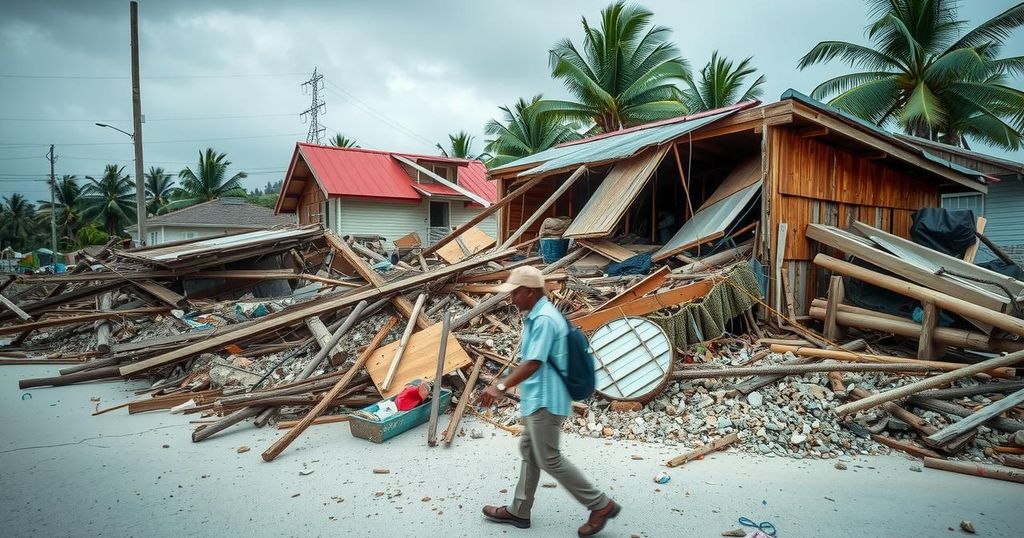Cyclone Chido Devastates Mayotte, Causing 11 Deaths and Extensive Damage
Cyclone Chido has devastated Mayotte, resulting in 11 fatalities and extensive damage. Winds exceeded 220 kph, leading to significant destruction, while critical conditions persist for several injured individuals. The cyclone has also affected neighboring islands and is now threatening Mozambique, impacting millions.
Cyclone Chido has inflicted severe damage upon the French territory of Mayotte in the Indian Ocean, leading to the loss of at least 11 lives, as reported by France’s Interior Ministry on Sunday. The ministry indicated that obtaining an accurate account of fatalities and injuries is challenging, with preliminary reports showing nine individuals in critical condition and 246 others injured. The cyclone’s catastrophic path also affected the neighboring islands of Comoros and Madagascar.
According to the prefect of Mayotte, this cyclone is regarded as the most devastating to strike the region in 90 years. Winds reached over 220 kph, causing havoc by tearing off metal roofs and destroying numerous structures within Mayotte, which is home to approximately 300,000 residents spread across two major islands. Reports indicate entire neighborhoods have been devastated, with uprooted trees and severely damaged boats noted by local inhabitants. The main airport also sustained significant damage.
Additionally, French Interior Minister Bruno Retailleau expressed grave concerns following an emergency meeting in Paris, stating, “there are fears that the death toll in Mayotte will be high.” Cyclone Chido has now progressed to make landfall in Mozambique, affecting two northern provinces, where officials anticipate potential impact on 2.5 million people. Preparations are underway in the landlocked nations of Malawi and Zimbabwe, as they brace for possible evacuations due to anticipated flooding. The recent trend of impactful cyclones in the southeastern Indian Ocean echoes past events, such as Cyclone Idai in 2019, which resulted in over 1,500 fatalities across Mozambique, Malawi, and Zimbabwe.
Cyclone Chido’s devastation in Mayotte highlights the region’s vulnerability to extreme weather events. Mayotte, a French overseas department located in the Indian Ocean, has faced numerous challenges, including economic hardship and infrastructural underdevelopment. The intensity of recent cyclones in the southeastern Indian Ocean underscores the growing severity of such natural disasters, prompting increased concern for preparedness and response strategies. Furthermore, with Chido transitioning to Mozambique and beyond, it poses a widespread threat across the African mainland, especially to its northern provinces. Historical data illustrates a pattern of damaging cyclones, emphasizing the crucial nature of ongoing monitoring and prevention efforts in the context of climate change and environmental impact.
In summary, Cyclone Chido has wrought significant destruction in Mayotte, resulting in at least 11 fatalities and vast infrastructural damage. The aftermath reveals the extent of the devastation, with numerous injuries reported and critical conditions persisting. The cyclone’s further journey to Mozambique raises concerns for millions along its path. As the region grapples with the immediate repercussions, the long-term impacts of such climatic events demand urgent attention to improve resilience and response capabilities. The situation mirrors previous cyclonic disasters that have keen implications for the future of the vulnerable populations in the affected areas.
Original Source: www.business-standard.com




Post Comment